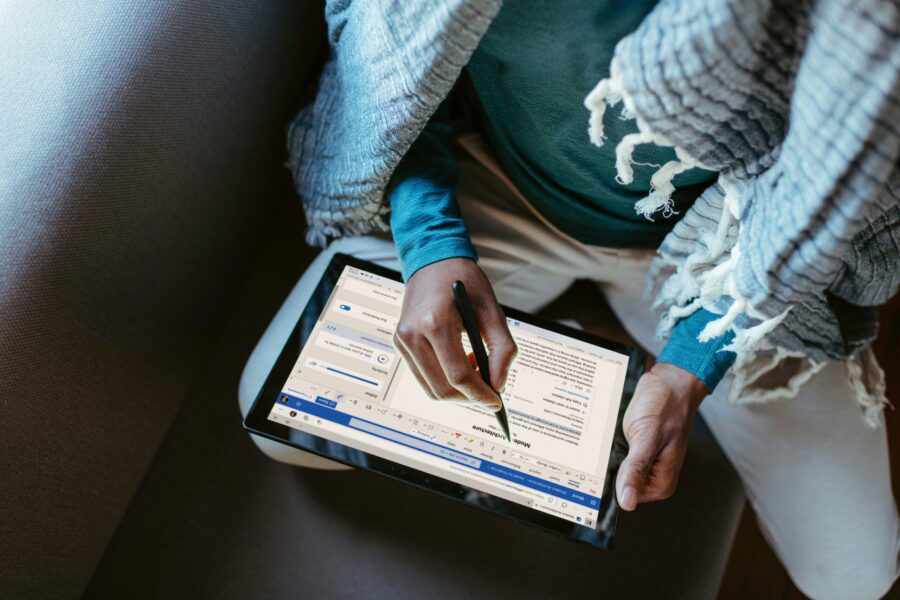The distinctly different work-life balance requirements of Gen Z are seen as the biggest challenge faced by employers looking to adapt to the new generation of workers, according to new global research from Wipro-owned experience innovation company Designit.
Nearly half (49%) of respondents to the poll said Gen Z’s work-life balance demands were the number-one challenge to employers, followed in second place by the need to align to Gen Z values (38%).
Both of these were seen as significantly more challenging to employers than retaining creativity (8%) or embracing the tech innovation required to engage digital natives (6%).
With Gen Z set to comprise a quarter of the global workforce by 2025, Designit’s research highlights how businesses are going to have to shift dramatically to attract, engage and retain younger employees – particularly as employee experience has a direct impact on customer experience.
Dr Pardis Shafafi,a global responsible business lead at Designit, notes that Gen Z’s approach to work often includes a strong emphasis on work-life balance, leading to a perception that they may lack commitment or creativity. However, Dr. Shafafi suggests that this is less a lack of motivation and more a shift in mindset from a generation shaped by current societal challenges.
Rather than attempting to “fix” this outlook, employers should focus on adapting to the new generation’s values by fostering transparency, integrity, and a commitment to shared values. Employers who adjust in these ways are more likely to attract and retain Gen Z talent by creating fair, transparent workplaces that align with the priorities of this new generation.
Shafafi concludes;
Increasingly, Gen Z is motivated by a common good, strong company values, and the offer of a fair and transparent transaction for their time. If neither are available, insouciance will reign. As Gen Z becomes the dominant force in the workplace, employers who respond proactively to these changes will thrive.
Dr Pardis Shafafi, global responsible business lead, Designit
Ultimately, these findings underscore the importance for employers to adapt to the evolving priorities of Gen Z, particularly around work-life balance and value alignment. As this generation becomes a larger share of the workforce, companies that respond by creating transparent, value-driven environments will be better positioned to attract and retain Gen Z talent, securing both employee and customer loyalty in the years to come.
Joanne is the editor for Workplace Wellbeing Professional and has a keen interest in promoting the safety and wellbeing of the global workforce. After earning a bachelor's degree in English literature and media studies, she taught English in China and Vietnam for two years. Before joining Work Well Pro, Joanne worked as a marketing coordinator for luxury property, where her responsibilities included blog writing, photography, and video creation.
- Joanne Swann
- Joanne Swann
- Joanne Swann
- Joanne Swann
- Joanne Swann
- Joanne Swann
- Joanne Swann
- Joanne Swann
- Joanne Swann
- Joanne Swann
- Joanne Swann
- Joanne Swann
- Joanne Swann
- Joanne Swann
- Joanne Swann
- Joanne Swann
- Joanne Swann
- Joanne Swann
- Joanne Swann
- Joanne Swann
- Joanne Swann
- Joanne Swann
- Joanne Swann
- Joanne Swann
- Joanne Swann
- Joanne Swann
- Joanne Swann
- Joanne Swann
- Joanne Swann
- Joanne Swann
- Joanne Swann
- Joanne Swann
- Joanne Swann
- Joanne Swann
- Joanne Swann
- Joanne Swann
- Joanne Swann
- Joanne Swann
- Joanne Swann
- Joanne Swann
- Joanne Swann
- Joanne Swann
- Joanne Swann
- Joanne Swann
- Joanne Swann
- Joanne Swann
- Joanne Swann
- Joanne Swann
- Joanne Swann
- Joanne Swann
- Joanne Swann
- Joanne Swann
- Joanne Swann
- Joanne Swann
- Joanne Swann
- Joanne Swann
- Joanne Swann
- Joanne Swann
- Joanne Swann
- Joanne Swann
- Joanne Swann
- Joanne Swann
- Joanne Swann
- Joanne Swann
- Joanne Swann
- Joanne Swann
- Joanne Swann
- Joanne Swann
- Joanne Swann
- Joanne Swann
- Joanne Swann
- Joanne Swann
- Joanne Swann
- Joanne Swann
- Joanne Swann
- Joanne Swann
- Joanne Swann
- Joanne Swann
- Joanne Swann
- Joanne Swann
- Joanne Swann
- Joanne Swann
- Joanne Swann
- Joanne Swann
- Joanne Swann
- Joanne Swann
- Joanne Swann
- Joanne Swann
- Joanne Swann
- Joanne Swann
- Joanne Swann
- Joanne Swann
- Joanne Swann
- Joanne Swann
- Joanne Swann
- Joanne Swann
- Joanne Swann
- Joanne Swann
- Joanne Swann
- Joanne Swann
- Joanne Swann
- Joanne Swann
- Joanne Swann
- Joanne Swann
- Joanne Swann
- Joanne Swann
- Joanne Swann
- Joanne Swann
- Joanne Swann
- Joanne Swann
- Joanne Swann
- Joanne Swann
- Joanne Swann
- Joanne Swann
- Joanne Swann
- Joanne Swann
- Joanne Swann
- Joanne Swann
- Joanne Swann
- Joanne Swann
- Joanne Swann
- Joanne Swann
- Joanne Swann
- Joanne Swann
- Joanne Swann
- Joanne Swann
- Joanne Swann
- Joanne Swann
- Joanne Swann
- Joanne Swann
- Joanne Swann
- Joanne Swann
- Joanne Swann
- Joanne Swann
- Joanne Swann
- Joanne Swann
- Joanne Swann
- Joanne Swann
- Joanne Swann
- Joanne Swann
- Joanne Swann
- Joanne Swann
- Joanne Swann
- Joanne Swann
- Joanne Swann
- Joanne Swann
- Joanne Swann
- Joanne Swann
- Joanne Swann
- Joanne Swann
- Joanne Swann
- Joanne Swann
- Joanne Swann
- Joanne Swann
- Joanne Swann
- Joanne Swann
- Joanne Swann
- Joanne Swann
- Joanne Swann
- Joanne Swann
- Joanne Swann
- Joanne Swann
- Joanne Swann
- Joanne Swann
- Joanne Swann
- Joanne Swann
- Joanne Swann
- Joanne Swann
- Joanne Swann
- Joanne Swann
- Joanne Swann
- Joanne Swann
- Joanne Swann
- Joanne Swann
- Joanne Swann
- Joanne Swann
- Joanne Swann
- Joanne Swann
- Joanne Swann
- Joanne Swann



